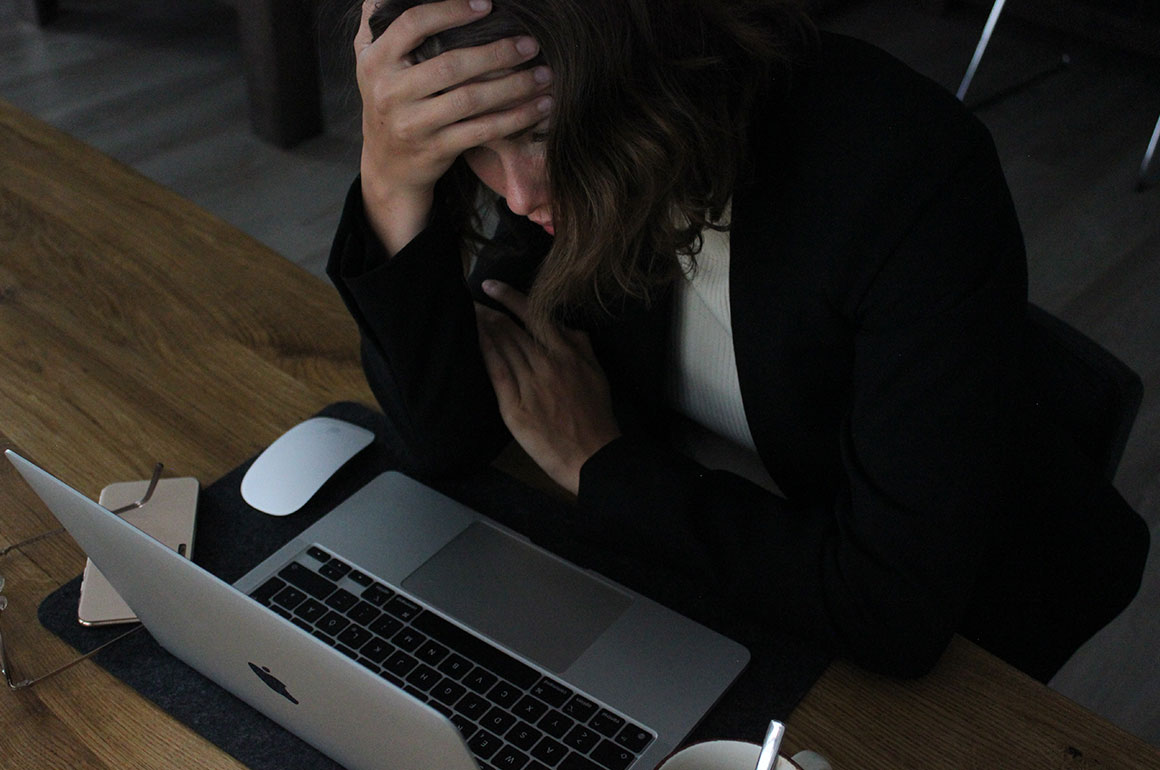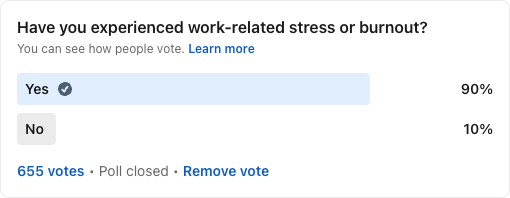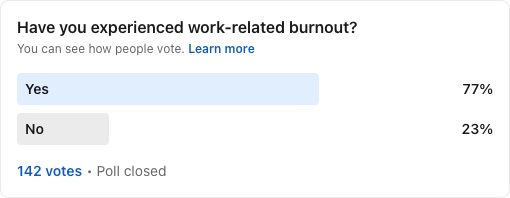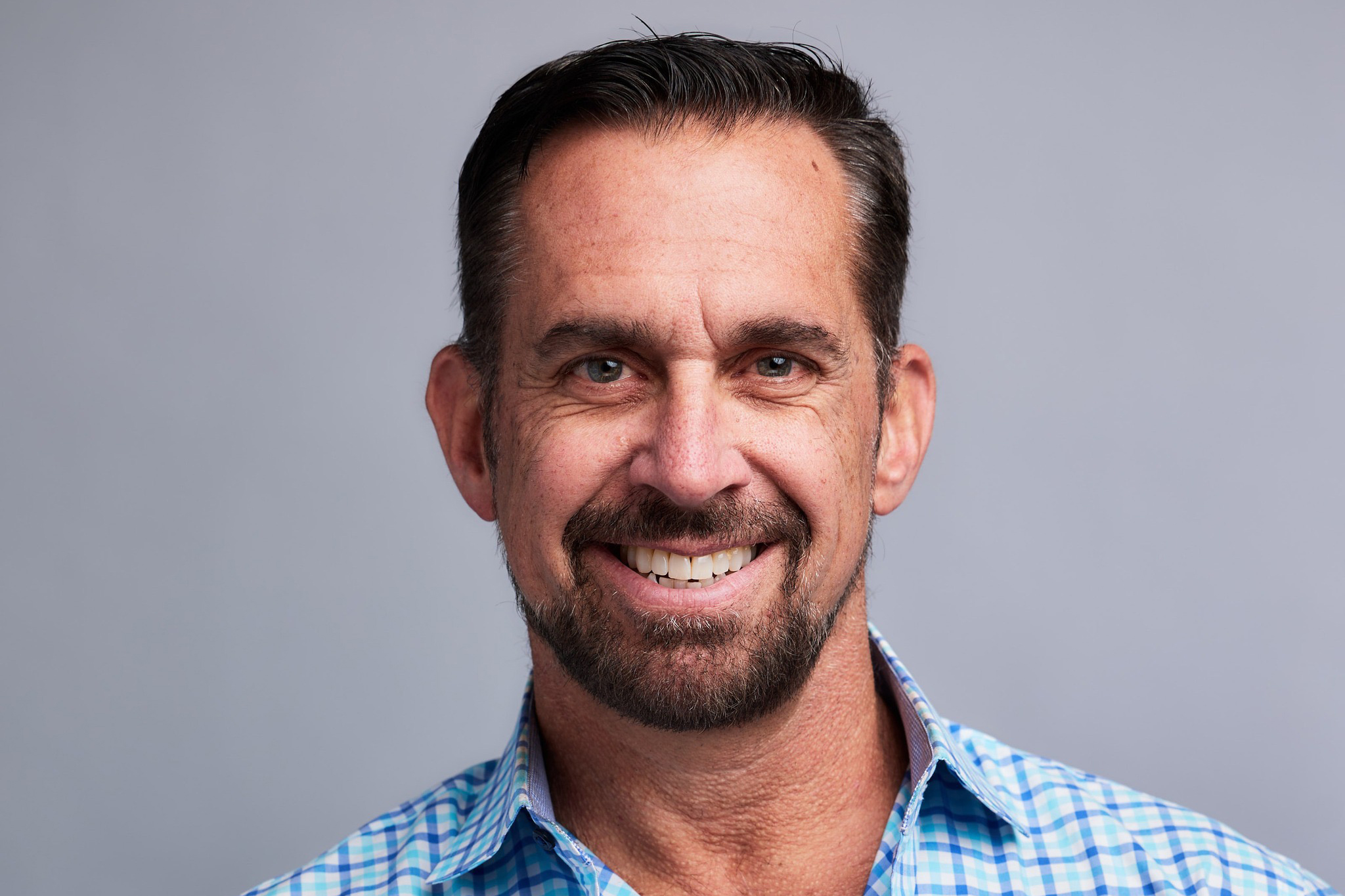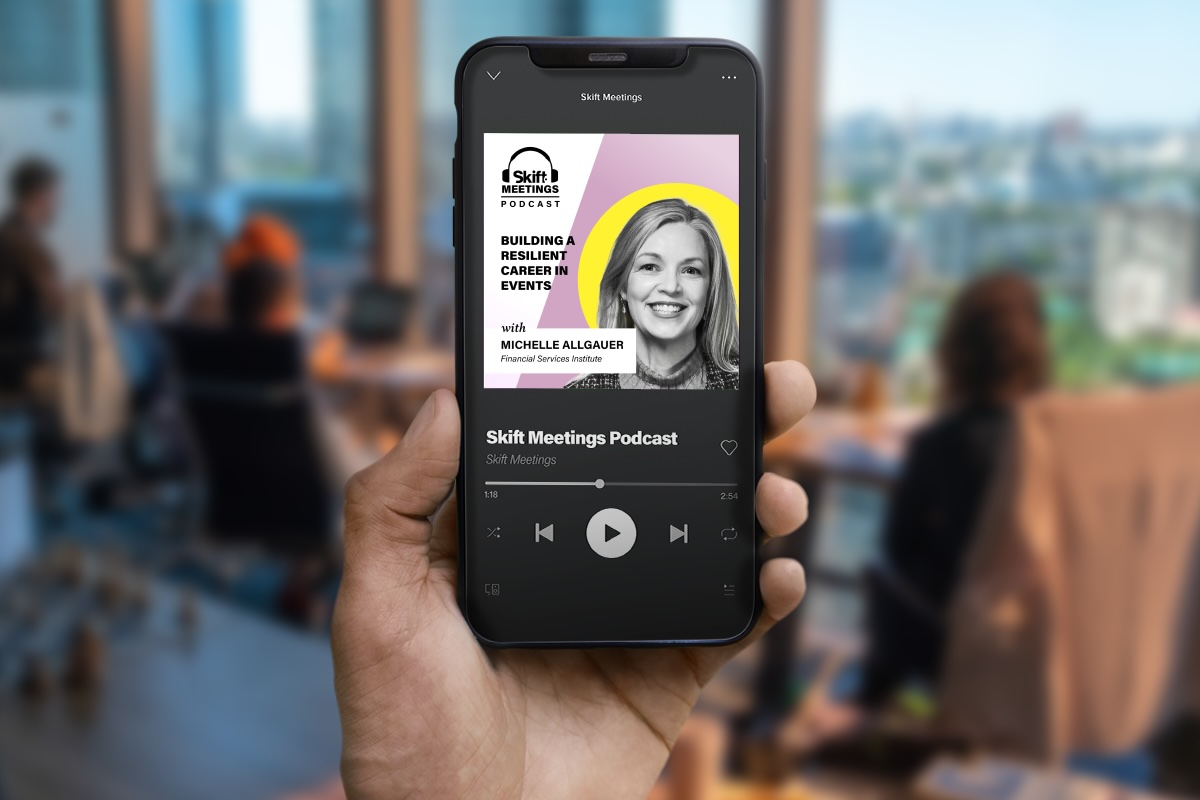Skift Take
Mental health issues are not new to the events industry — these experiences have been present for some time. But with event profs currently facing exceptionally high-stress levels, more people are living with mental health challenges like burnout.
Mental health can be somewhat of a taboo topic. People generally don’t talk about their struggles and prefer to wear a brave face to avoid being perceived as weak or unable to cope. This coping mechanism is also evident in the events industry, as it has always been somewhat of a pressurized career choice that requires people to make minimal mistakes and take on a can-do (everything) attitude.
Currently, many event professionals are dealing with mental health challenges due to the effects of the pandemic. For some it may be the first time they have had significant issues, and for others, the present external circumstances may have compounded existing mental health challenges. The result — as job security diminishes and financial pressures increase, coupled with uncertainty around the future — is the perfect storm for a mental health crisis within the sector.
But before we are event professionals, we are human. Just like on an airplane, when the safety briefings say to fix your oxygen mask before assisting others with their masks — we are not much use to anyone as event professionals unless we safeguard our mental health and wellbeing as humans first. Further, because we are human, and not only defined by our careers, people working within the space have a right to quality of life, feeling heard and not alone while having access to support and an equitable work-life balance.
AN INTRODUCTION TO BURNOUT
There are many clinically recognized mental health conditions, like depression, anxiety, and mood disorders. However, not all mental health challenges have been seen as legitimate diagnoses in the past. A mental health challenge that falls into this category is burnout.
In 2019, the World Health Organization (WHO) declared burnout an official diagnosis. At present, burnout officially relates to occupational experiences only and is defined as:
“Burnout is a syndrome conceptualized as resulting from chronic workplace stress that has not been successfully managed. It is characterized by three dimensions: 1) feelings of energy depletion or exhaustion; 2) increased mental distance from one’s job, or feelings of negativism or cynicism related to one’s job; and 3) a sense of ineffectiveness and lack of accomplishment. Burn-out refers specifically to phenomena in the occupational context and should not be applied to describe experiences in other areas of life.”
– World Health Organization
Burnout has been prevalent in the industry for some time now, with current external circumstances potentially leading to an increase in event professionals experiencing it. But what is the relationship — and the distinction — between burnout and stress? How have others coped with it? Has it increased over the past couple of years? And what are some practical tips for preventing burnout?
The difference between stress and burnout
To prevent and manage burnout, we first need to understand the condition’s ins and outs. While stress and burnout may interlink in some cases, they are not the same:
Stress
Stress is a response to external mental or emotional pressures that can feel momentarily overwhelming. With stress, tension exists, but there is a sense of hope and seeing a way out in the future, even if the path to recovery may not be immediately clear. Stress generally includes overactive emotions, a sense of urgency, anxiety, and gradual loss of energy. It can even cause physical damage to the person experiencing it, but the person is still able to function in everyday activities.
Burnout
Excessive and consistent amounts of stress may ultimately lead to burnout. But it is not the same as stress. With burnout, people withdraw from work; the affected individual experiences a numbing and blunting of emotions along with a loss of motivation, leading to detachment and depression. The primary damage is emotional (although physical symptoms will usually also manifest), and those affected exist in a state of inertia, feeling powerless to change their circumstances and hopeless about the future. In severe cases, burnout can lead to a total shutdown — resulting in the inability to function in day-to-day activities.
And although stress is generally considered a prerequisite for burnout, burnout is not the result of too much stress only — additional factors must also be present for burnout to happen in the workplace. Some contributing factors include unfair treatment at work, an unmanageable workload, lack of role clarity and expectations, minimal communication and support, and time pressure.
Further, according to psychologists Herbert Freudenberger and Gail North, burnout presents in a 12-stage model:
1. The Compulsion to Prove Oneself
2. Working Harder
3. Neglecting Needs
4. Displacement of Conflicts
5. Revision of Values
6. Denial of Emerging Problems
7. Withdrawal
8. Odd Behavioral Changes
9. Depersonalization
10. Inner Emptiness
11. Depression
12. Burnout Syndrome
It is important to remember that when dealing with burnout, people may not experience these stages in the order outlined above, as everyone responds to external stressors and circumstances differently.
Essentially, the main distinguishing factors between stress and burnout are related to how people cope. With stress, people over-engage, and with burnout, they disengage.
Burnout is also not strictly a mental disorder or illness, although it does fall into the realm of mental health and wellbeing — it is an occupational syndrome. However, burnout can increase the risk for mental illness, so it is critical to address it before it reaches this stage.
Event professionals share their stories
“I had a burnout in 2019. I was on sick leave for six months and worked halftime for another six months before working full-time again. On the one hand, it felt like one of the darkest periods of my life. There was simply no light. There was no perspective. There was no ‘me’ anymore. I wish no one would have to experience that. On the other hand, my burnout has been a blessing, and I can’t imagine ever going back to how it was before. It has changed my quality of life, and I am still learning from it today.”
– An event professional who wishes to remain anonymous
Experiencing something like burnout or other mental health challenges can leave us feeling alone, causing us to question our worth and capabilities. At these times, it is crucial to remember that many people have experienced something similar at one point or another in their lives.
Helen Moon, chief executive of EventWell and seasoned event professional, suffered from burnout and a mental breakdown shortly after being diagnosed with bipolar disorder in 2009. Now, she works to help others in the industry dealing with mental health challenges.
Moon explains that we all have to be mindful of our mental health and that everyone exists on a mental health continuum:
“There’s no such thing as people in a poor mental health camp and people in a good mental health camp. Some people live with mental health disorders and mental health illnesses (two different things) in the same way that people live with physical health disorders and illnesses. And we move up and down that scale. You can get the flu and do not need the intervention of medical professionals. But you can get the flu that develops into pneumonia, and then you do need a GP to give you some antibiotics. And it’s the same with your mental health. So there’s no such thing as those people over there that have poor mental health with others exempt.”
– Helen Moon, chief executive, EventWell
BREAKING THE SILENCE
Disruptions to mental health do not discriminate in the same way that disruptions to physical health do not discriminate — they can happen to anybody. Because of this, more people are speaking up about mental health challenges.
“We are now finding that people are becoming more comfortable talking about mental health, especially in the workplace.” says Moon. “This movement could be partly attributed to celebrities and thought leaders talking about their experiences and the impact of the pandemic.”
Moon believes that these high-profile conversations are helping to foster open dialogue: “[I]t is becoming normalized even after mental health challenges and mental illness were stigmatized and discriminated against for a long time.” Suggesting that there is more work to be done, she adds, “However, it can still be difficult for people to understand the everyday impacts if they have not experienced it themselves. The fear and judgment people live with is real: How will people view me? Will people think I can’t perform? Do people think I am unstable?”
By tapping into the power of sharing stories, listening to, and learning from others, event professionals have the opportunity to help remove or reduce the stigma and shame surrounding these topics.
Below, we provide anecdotes and advice from both current and former event professionals who came forward to share their experiences with the community.
Laura Capell-Abra
Workplace wellbeing specialist, founder of Stress Matters, and past event professional/creative
Having worked in the creative and events sectors for over 20-years of her career, Laura’s approach to looking after team members in the creative industry comes from first-hand knowledge. Laura first experienced burnout in her twenties while working as an event professional, which led to her starting Stress Matters in 2018. She has since created two businesses that support leaders to get the best out of people.
“I’ve worked in marketing events for most of my career, and back in my mid-twenties, I experienced burnout to quite an extreme level and had to take an extended period off work. After treating my burnout with some therapy, I ended up slotting myself back into events and just carrying on. I always just assumed it was just me not being good enough at what I do and not quite being able to hack it — I didn’t talk about it, even with my friends and family.
As I progressed in my career, I ended up running an agency. Within that space, team members were experiencing burnout and taking stress leave. That is when it hit home.
I had ignored and hidden my story for such an extended period that I had forgotten about it. At that point, it reminded me of, ‘Well, hang on a minute, how is this happening to other people in my care?’ And I felt responsible that I’d created an environment where burnout was possible, and it made me reflect quite a lot on what was happening. Yes, a person will experience burnout. But the workplace, company culture, and industry culture also impact and influence what people are going through regarding things like burnout.
At the time, being a managing director of an agency and hugely passionate about people’s wellbeing and culture, I didn’t know how to help, what I could do, or the best approach. After much exploration and research into the industry in 2016, Stress Matters became an official organization in 2018. Since then, the company has gotten bigger and bigger, and then over the last two years, as you can imagine, we have become (extremely) busy. ”
Liesl Leary-Perez
Vice president, corporate marketing at Hubilo, co-owner of a mental health clinic
Liesl Leary-Perez spent over 20 years in the translation industry learning to communicate with people from all walks of life before becoming the VP of corporate marketing at Hubilo. She is an active corporate philanthropist, raising money for causes that promote sustainable economic development and diversity initiatives. Liesl knew she was experiencing burnout, as opposed to stress, a couple of years ago, when she felt a sense of extreme emptiness.
“When I burned out at my last company, I was running internal communications, and all of a sudden, I was given additional responsibilities regarding event organization. While I had prior experience running million-dollar events, at the time, I didn’t have access to the resources needed. Suddenly, I was told, ‘Hey, guess what? We are doing a global town hall in six regions, and you’re organizing it.’ Or, ‘You’ve got to organize an event in response to this, or that.’
People don’t realize these are full events. And events take a lot of time and effort. Now we are seeing a trend that companies are requesting internal events of all sorts, and more often than not, the people planning the event are not fully equipped.
Then you’re at home, you are on a computer, doing several different things. People are emailing you, your phone’s ringing, your kid needs something, it’s just too much. And your brain almost can’t adapt quickly enough. These types of situations in the workplace can lead to burnout — which is what I experienced.
There’s definitely a difference between stress and burnout. When you burn out, you feel empty. Like an empty building that has nothing to give anymore. Not to your kids. Not to your job. Not to your family. And there’s a high level of irritation and just moving through the motions of life. And when you do feel sadness, you try to embrace it, but the scary part about that is, what if I never stop crying? You then start feeling the same about work — what if I fail? That will be on me, and what does that say about me as an event professional?
Now that I have recovered and healed, I can look back and laugh, but at the time, it was not funny — I felt like a patient in my clinic.”
Heather Beach
Founder of The Healthy Work Company, past event professional
Heather Beach has a background in the health and safety profession running information services and media. She studied individual wellbeing through an Applied Positive Psychology (MSc) program and holds a certificate in organizational theory (Relational Organizational Gestalt). Here, Heather speaks of her experience of burnout while being self-employed. Subsequently, she is now a specialist in the field, has released a study on burnout, and offers courses for others coping with the syndrome.
“Burnout is deemed an occupational condition in WHO’s ICD11 — which would suggest that workplaces are entirely to blame.
However, it is interesting to note that it was not working in an events business that caused me to burn out, but instead working for myself. Doubly ironic was that post my career in events, my business was in wellbeing.
In the early days of trying to run a new business, studying for a master’s degree in positive psychology, and being a single parent, burnout occurred. I was writing an essay about resilience for my master’s when I first noticed I was struggling.
My burnout manifested in losing interest in my work, feeling hopeless, and absolutely exhausted. It did not just mean I could not work — I literally could not get out of bed or get my daughter to school or run the house. It lasted for about four weeks, and then I started to recover.”
Burnout in 2022
Burnout can affect anyone in any sector. And while this occupational syndrome has been present in the industry for a long time, event professionals have experienced a lot of hardship over the past two years. Here we take a closer at burnout in 2022 from an industry perspective.
RECENT DATA
Miguel Neves, editor in chief for EventMB, recently posted a poll to LinkedIn asking event professionals if they have suffered from burnout or stress. Out of 656 responses, 90 percent said yes, and only 10 percent said no.
To further explore these results, Neves posted a follow-up poll asking if event professionals had suffered from burnout in particular — out of the 142 votes, 77 percent said yes, and 23 percent said no.
While these polls do not account for the type of work-related stress that was experienced, the possibility of diagnosis by a medical professional, or the extent of the burnout, the results suggest that many event professionals have or are experiencing high levels of stress and burnout.
When asked if burnout had recently increased due to the pandemic or if it had always been present — with people simply talking about it more now — all three professionals interviewed for this post said that both statements were true.
“A serious amount of work has been done by organizations (including ourselves) to be more comfortable talking about mental health and wellbeing,” says Capell-Abra. “In addition, there has also been a huge shift on a societal level on what’s acceptable to talk about and the stigma surrounding mental health. Speaking to the effects of the pandemic, she adds, “[W]e cannot deny the impact it has had on mental health due to an increase in risk factors, like unemployment, instability, lack of certainty, loneliness, and isolation. But it is too soon to tell what the long-term impact will be.”
In the midst of this climate of uncertainty, Stress Matters surveyed event professionals and released a white paper in 2021 regarding mental health. While Capell-Abra states that the results could be influenced by what was happening outside the working environment, there was a notable decline in mental health within the industry. Work affects personal life and vice versa.
The results showed that 81.2 percent of freelancers considered leaving the industry in the last 12 months. Additionally, the causes of workplace stress also correlated to a degree with some of the main reasons people experience burnout.
NEW WORK ENVIRONMENTS
With the rise of remote and hybrid working (even in the event industry), will new professional norms contribute to stress and potentially burnout? While remote working offers employees flexibility and an opportunity to focus on the tasks at hand, the “always-on” mindset of remote working can erode the boundaries between work and home life, leading to an increase in stress and burnout. Further, could this working environment be behind trends like mass resignations?
Leary-Perez agrees that these factors have contributed: “With remote work, stress is heightened because we’re socially distanced and not able to see people as much as we can. We are also always on because of consistent multi-tasking.”
However, burnout existed before current circumstances, and while the risk factors have certainly increased, some have had positive experiences with certain aspects of remote working, such as the ability to limit interactions with toxic co-workers or to achieve better focus.
We may not yet know what effect remote working will have on burnout and stress long term, but it is a matter worthy of study. Even simply for the sake of employee retention, companies and organizations have an obligation to proactively identify and address any factors that might amplify the risk of burnout.
HOW ARE COMPANIES RESPONDING?
Ensuring employees are in a healthy mental and emotional space benefits companies, ultimately reducing the need for long-term leave and enabling improved performance.
Underperforming mental health support
A recent survey conducted by Modern Health found that when it comes to workplace initiatives designed to support mental health, the employers’ positive self-evaluations showed a disconnect with employee satisfaction levels:
“The vast majority of C-suite executives (88 percent) and HR leaders (86 percent) think they’re doing a good job when it comes to mental health. At the same time, while 87 percent of workers (both managers and non-manager employees) want their employers to care about their mental health, only 66 percent actually feel supported. In fact, 28 percent of employees and managers feel that their employer failed to support their mental health during the pandemic.”
So while many companies and organizations seem to be investing more in employee mental health, they might not be getting it right — at least not yet.
The influence of company and industry culture
Company and industry culture can play a big part in contributing to burnout and mental health challenges, and the event industry is a case in point.
The events sector caters to a certain mindset, explains Beach. “We all know that the events business predominantly attracts creative, can-do people who like activity/variety and being busy. But event professionals are not immune to the risk of burnout, and the industry itself is structured in a way that means that the risk is there.”
On a similar note, Capell-Abra observes that it may sometimes help to put things in perspective: “We are not saving lives — we are putting on events. It’s high pressure, of course, but it seems to be a cultural thing, and we need to shake it and enjoy the space a little more.”
Workplace systems for preventing burnout
Beach also suggests that organizations take a “prevention is better than cure” approach when building resilient teams and organizations.
Capell-Abra agrees that a preventative approach is best. In particular, Stress Matters aims to make companies realize that by supporting the educational and foundational needs of their team members from the outset, they can prevent employees from reaching the burnout stage and taking extended leave. “If we consider people’s stress levels and we deal with it when it’s just stress, then it’s far less likely to move onto depression or anxiety or burnout or anything like that. As event professionals, we can accept pressure and deadlines. But we should not be accepting the level of stress that people experience in this industry.”
Further, increasing levels of stress and burnout have triggered a rise in support services. Organizations can now take advantage of innovative solutions for employees needing to recover — such as those mentioned in a recent Skift post, “Travel Outfits Offer Solutions to Companies for Pandemic Worker Burnout.”
Practical tips for coping with stress and burnout
While extreme stress does physical damage to our bodies and may lead to burnout, eliminating stress altogether might be counterproductive — moderate stress levels help us function and perform when needed. Instead, we should focus on managing our stress better and changing our perception of it.
Here are some practical tips for coping with stress and preventing burnout, all provided by event professionals who have been there.
Helen Moon:
Rest
“My biggest tip is to rest. So work hard, and rest harder. Sleep is your golden nugget.”
Unwind with hobbies
“Event profs should find things outside the industry that they love to switch off, like hobbies and spending time with people they love.”
Practice deep breathing
“Practicing deep breathing is also crucial. When we breathe normally, we call it homeostasis breathing — it happens automatically. If threatened in the pre-historic era, our sympathetic nervous system (the fight-flight-freeze response) would activate. As soon as the threat was gone, then our parasympathetic nervous system would automatically click in to calm us down. But what we’re finding in modern life is that the parasympathetic nervous system is not kicking in automatically because the stress is still there — you’re still releasing adrenaline and cortisol. But we can automatically trigger the parasympathetic nervous system through deep breathing and bring our body back into equilibrium.”
Laura Capell-Abra:
Prioritize your own needs
“So often, we get caught up in a world where we feel obliged to do everything, all the time, for everyone. We forget to take care of ourselves. So I think just doing a little bit of a moment to ask yourself what’s important to you, what do you like spending your time doing?”
Set healthy boundaries
“We also need to acknowledge that many event profs have different priorities (like being introverted), and sometimes people don’t feel like connecting with others all the time. And that is where boundaries come into play — knowing yourself and your limits and not being afraid to say no. Setting boundaries doesn’t make you any less competent at your job, whatever they may be.”
Listen to your body
“And don’t forget to listen to your body. In stress management sessions, I always explain that your body is tapping you on the shoulder to say you are not okay, do something about it. We need to understand that our body is clever, and we must not ignore it. It will give us signs. People think mental health is all in their heads, but it is (hugely) connected to our physical being at the same time.”
Liesl Leary-Perez
Practice self-care
“As event professionals (and women in particular), we are conditioned to care for others. But you need to take care of yourself first before you can do that. Otherwise, everything falls apart.”
Seek professional help when you need it
“Take whatever approach works best for you when treating burnout and work with qualified medical professionals whenever needed. I took a multi-prong approach that included supervised ketamine therapy, an antidepressant, and nutritional psychiatry.”
Explore holistic treatments
“I also increased my vitamin intake and integrated calming practices like yoga into my recovery.”
Nurture your social support network
“Spending time with people you love is also a must. At first, visits may be short, but you can build up to longer social situations over time. Your support system is very important.”
Heather Beach:
Attend to your physical health
“To prevent burnout, keep your energy topped up and give yourself the best chance of staying well. That means looking after yourself properly by getting good sleep, eating well, and exercising (and perhaps drinking a bit less alcohol!).”
Re-evaluate your workload
“If you do succumb to burnout, you must rest and rebuild. At work, discuss with your manager if your to-do list is too long. What would they like you to prioritize? What can wait? Can something be delegated? You could use the Eisenhower matrix for this. Organizations must also think about employee wellbeing when planning an event or project. Does the schedule place too much pressure on one individual? Can they be swapped out with someone else? Can you ensure there is a place to rest and that breaks can happen?”
On the other side of burnout
By building resilience, practicing self-care, and learning to set boundaries, people can better manage their stress and potentially avoid burnout. But for these measures to be successful, organizations must also change their mental health narrative and create environments that nurture a healthy company culture.
Burnout is not new. However, perhaps our response and acknowledgment of it and other mental health challenges are, and the tide is slowly turning.
